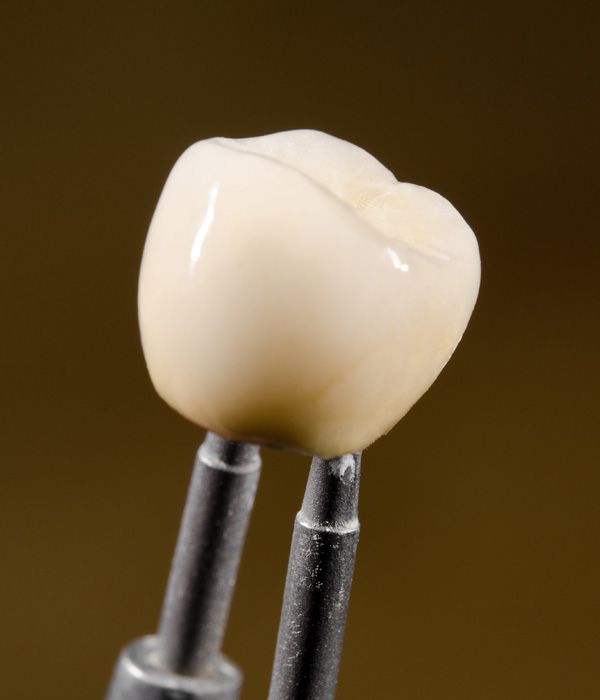Sensitivity after Dental Crowns
 Dental crowns are tooth-shaped restorations that improve oral health while also restoring the strength and appearance of damaged teeth.
Dental crowns are tooth-shaped restorations that improve oral health while also restoring the strength and appearance of damaged teeth.
Treating severely decayed or damaged teeth with dental crowns can help reduce pain and improve dental function but some people may experience tooth sensitivity after treatment. Dr. Danny O’Keefe and Dr. Jan O’Keefe Belote discuss sensitivity after dental crowns with patients at their Flowood, MS, practice and provide tips to alleviate discomfort.
What Causes Sensitivity after Dental Crown Placement?
Healthy teeth are protected by a hard outer layer called enamel. Enamel prevents bacteria and other debris from entering the inner portion of the teeth where nerves and blood vessels are found.
In order to place a dental crown, some of the enamel must be removed as well as any decayed portions of the tooth. As a result, teeth treated with dental crowns may feel more sensitive to hot and cold temperatures and chewing pressures. Sensitivity generally subsides as the tooth adjusts to the crown.
Other Causes of Sensitivity after Dental Crowns
Although changes to the enamel are a common cause of sensitivity after dental crowns, sensitivity may also be caused by:
- Tissue inflammation: Tissue inflammation in and around the treated tooth may occur as a result of the dental crown procedure. Sensitivity caused by tissue inflammation tends to subside as the tissues recover.
- Problems with dental crown fit: Although care is taken to create the proper fit, sometimes a dental crown may sit too high or just slightly off, causing irritation and sensitivity.
- Damaged dental nerve: If sensitivity continues weeks after dental crown placement or becomes worse, it may be caused by a damaged dental nerve. Dental nerves can become damaged if bacteria is able to reach through a fracture or decay and infect the nerve tissue.
How Long Does Tooth Sensitivity Last after Dental Crowns?
The degree of increased tooth sensitivity and the amount of time it lasts will vary from patient to patient. Some may only experience minor sensitivity for a day or two while others may have more sensitivity for up to two weeks after their crown has been placed.
Those with extensive decay or damage are more likely to experience more sensitivity after dental crown placement as there is likely less enamel between the crown and inner dental nerves. In such circumstances, sensitivity typically subsides as the tooth adjusts to the new crown.
Tips to Reduce Sensitivity after Dental Crown Treatment
For many patients, tooth sensitivity after dental crown placement resolves on its own within a few days of treatment. For those who continue to experience sensitivity or pain becomes worse, our Flowood dentists can administer a dental examination to determine the cause and provide treatment options, such as a crown adjustment or root canal therapy.
With that said, there are some things patients may do on their own to reduce sensitivity after dental crown treatment; these include:
- Taking doctor recommended over-the-counter pain medication.
- Avoiding hard or sticky foods which can aggravate teeth recently treated with dental crowns.
- Consuming only lukewarm foods and drinks and avoiding foods and drinks that are steaming hot or icy cold.
Schedule a Consultation
For more information about dental crowns and tooth sensitivity or to discuss your dental concerns, call our Flowood practice at (601) 936-2526 to schedule an appointment.



